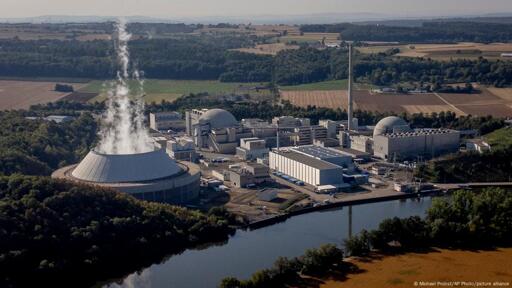Summary
A new Innofact poll shows 55% of Germans support returning to nuclear power, a divisive issue influencing coalition talks between the CDU/CSU and SPD.
While 36% oppose the shift, support is strongest among men and in southern and eastern Germany.
About 22% favor restarting recently closed reactors; 32% support building new ones.
Despite nuclear support, 57% still back investment in renewables. The CDU/CSU is exploring feasibility, but the SPD and Greens remain firmly against reversing the nuclear phase-out, citing stability and past policy shifts.



It’s not expensive because they are actually particularly hard to make though. They’re expensive because we made them expensive. There’s so many requirements and restrictions on them that aren’t on other power sources. Some of that’s good, but a lot is designed by dirty energy to keep them in business. They drive up the cost of nuclear and then get to say they’re cheaper.
Yeah i wonder why that could be lmao. Nothing ever went wrong with fission power plants right?
As I said, some is necessary. However, a lot is just to make it not viable to protect dirty energy. Nuclear fission is one of the safest sources of energy, including the disasters and clean energy. It’s incredibly safe, and has only gotten safer. The chance of a meltdown are damn near zero now, and even if one happens there’s little chance for significant issues.
Meanwhile coal is spewing out radioactive waste constantly and has very little restrictions.
Please, speak with or read info from lawyers who are nuclear engineers who went into regulations. Look at what they do and how pointless some of this paperwork and back and forth is. Listen to their stories about some of the legal shenanigans that have gone on at sites to prevent builds, not based on genuine concern but out of financial concern.
This, and people ignore the carbon emissions part. Nuclear is one of the least carbon emitting sources of energy which is vital to addressing climate change
Another big factor is that every plant is effectively a completely custom design. Because of how few nuclear plants are constructed, every new one tends to incorporate technological advancements to enhance safety or efficiency. The design also has to be adapted to the local climate and land layout. This makes every single plant effectively one of a kind.
It also tends to be built by different contractors, involving different vendors and electric utilities every time. Other countries have done better here (e.g. China and France) mostly due to comprehensive government planning: plopping down lots of reactors of the same design, done by the same engineers. Although these countries are not fully escaping cost increases either.
You are completely correct that regulation is also a big factor. Quality assurance and documentation requirements are enormously onerous. This article does a pretty decent job explaining the difficulties.